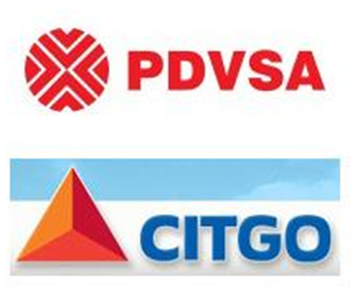CARACAS/WASHINGTON/, (Reuters) – U.S. President Donald Trump signed an executive order that prohibits dealings in new debt from the Venezuelan government or its state oil company yesterday in an effort to halt financing that the White House said fuels President Nicolas Maduro’s “dictatorship.”
Maduro, who has frequently blamed the United States for waging an “economic war” on Venezuela, said the United States was seeking to force Venezuela to default — but he said it would not succeed.
The order is Washington’s biggest sanctions blow to date against Maduro and is intended to punish his leftist government for what Trump has called an erosion of democracy in the oil-rich country, which is already reeling from an economic crisis.
 It suggests a weakening in already strained relations between the two countries. Just three days ago, Maduro said the relations between Caracas and Washington were at their lowest point ever.
It suggests a weakening in already strained relations between the two countries. Just three days ago, Maduro said the relations between Caracas and Washington were at their lowest point ever.
“All they’re trying to do to attack Venezuela is crazy,” said Maduro on a TV broadcast on Friday. “With the efforts of our people, it will fail and Venezuela will be stronger, more free, and more independent.”
Venezuela faces a severe recession with millions suffering food and medicine shortages and soaring inflation. The South American nation relies on oil for some 95 percent of export revenue. Citgo Petroleum, the U.S. refiner of Venezuela’s ailing state-run oil company PDVSA, is “practically” being forced to close by the order, warned Maduro, adding that a preliminary analysis showed the sanctions would impede Venezuelan crude exports to the United States. He said he was calling “urgent” meetings with U.S. clients of Venezuelan oil.
The new sanctions ban trade in any new issues of U.S.-dollar-denominated debt of the Venezuelan government and PDVSA because the ban applies to use of the U.S. financial system.
As a result, it will be it tricky for PDVSA to refinance its heavy debt burden. Investors had expected that PDVSA would seek to ease upcoming payments through such an operation, as it did last year, which usually requires that new bonds be issued.
Additional financial pressure on PDVSA could push the cash-strapped company closer to a possible default, or bolster its reliance on key allies China and Russia, which have already lent Caracas billions of dollars.
“They want us to fall into default,” said Maduro, adding that just under two-thirds of Venezuelan bond holders are in the United States.
Maduro insisted that Venezuela would continue paying its debts. The decision also blocks Citgo Petroleum from sending dividends back to the South American nation, a senior official said, in a further blow to PDVSA’s coffers.
However, the order stops short of a major ban on crude trading that could have disrupted Venezuela’s oil industry and worsened the country’s faltering economy.
It also protects holders of most existing Venezuelan government and PDVSA bonds, who were relieved the sanctions did not go further. Venezuelan and PDVSA bonds were trading broadly higher on Friday afternoon.
“Maduro may no longer take advantage of the American financial system to facilitate the wholesale looting of the Venezuelan economy at the expense of the Venezuelan people,” U.S. Treasury Secretary Steven Mnuchin said on Friday.
Venezuela’s Oil Ministry and PDVSA did not immediately respond to a request for comment.
PDVSA, the financial engine of Maduro’s government, is already struggling due to low global oil prices, mismanagement, allegations of corruption and a brain drain. Washington last month sanctioned PDVSA’s finance vice president, Simon Zerpa, complicating some of the company’s operations as Americans are now banned from doing business with him.
Trump has so far spared Venezuela from broader sanctions against its vital oil industry, but officials have said such actions are under consideration. The Republican president has also warned of a “military option” for Venezuela, although White House national security adviser H.R. McMaster said yesterday that no such actions are anticipated in the “near future.”
Venezuela has for months struggled to find financing because of PDVSA’s cash flow problems and corruption scandals have led institutions to tread cautiously, regardless of sanctions. Russia and its state oil company Rosneft have emerged as an increasingly important source of financing for PDVSA, according to a Reuters report.
On at least two occasions, the Venezuelan government has used Russian cash to avoid imminent defaults on payments to bondholders, a high-level PDVSA official told Reuters. “At this point our view is that the country can scrape by without defaulting this year, largely with the help of Chinese and Russian backing and by further squeezing imports. Next year is a tossup,” said Raul Gallegos, an analyst with the consultancy Control Risks.
However, China has grown reticent to extend further loans because of payment delays and corruption. Russia has been negotiating financing in exchange for oil assets in Venezuela, sources have told Reuters, but going forward it would be difficult for the OPEC member to provide enough assets to keep up loans destined for bond payments. Venezuela’s government has around $2 billion in available cash to make $1.3 billion in bond payments by the end of the year and to cover the import of food and medicine, according to documents reviewed by Reuters.







